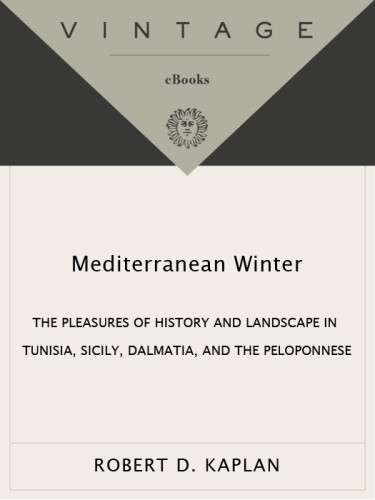
Mediterranean Winter
کتاب های مرتبط
- اطلاعات
- نقد و بررسی
- دیدگاه کاربران
نقد و بررسی

October 27, 2003
Many recent travel memoirs have focused on the personal minutiae of a journey, but Atlantic Monthly
correspondent Kaplan (Balkan Ghosts
) is a breed apart. Similar to classic writers like Lawrence Durrell and Henry Miller, Kaplan relates only a scant amount of detail about himself and why he's traveling. Particulars about quirky characters and minor annoyances are rare. Instead, he uses graceful prose to describe the history of the ground on which he walks and his absorption with events that happened centuries before he bought his first plane ticket. A visit to Carthage isn't merely a cozy ride through a pleasant landscape; as his train surges forward, he summons up the first foreign invasion from the Phoenician city-state of Tyre. With his lyrical writing style, Kaplan makes factual summations into slowly unraveling, luxurious tales. "The founding of Carthage is clothed in sumptuous myth," he writes. Sometimes, however, this approach interferes with coherence. The richness of the prose and the depth to which Kaplan delves into the past can make his actual travel experiences somewhat jarring. (When he collects a $40 check for freelance work from the Christian Science Monitor
, it's as if Hannibal had suddenly strolled into the American Express office.) But generally, the discord between Kaplan's everyday reality and his intellectual wanderings makes for a sweet mix. And because he dips so liberally into history and goes into such detail about ancient peoples, it doesn't matter that Kaplan's visits to the Mediterranean actually took place in the 1970s. His love for antiquity, much like his writing, is timeless. Agent, Carl D. Brandt.

October 1, 2003
Kaplan takes us to the Mediterranean.
Copyright 2003 Library Journal, LLC Used with permission.

December 15, 2003
Kaplan was an unknown freelance writer 28 years ago when, fresh from college, he embarked on the journey this volume chronicles. The author has since worked his way to the summit of the travel-writing business through such works as " Eastward to Tartary" (2000). The newness of the travel experience, and discovering ways to best digest it, is, therefore, a theme in Kaplan's recollection of this formative trip, which runs parallel to his description of people and places. Unerring avenues into a locale's historical and contemporary personality are works by other travelers. Thus allusions to titles ranging from antiquity (Sallust's " Jugurthine War") to the present are interwoven with Kaplan's itinerary, which culminates in meeting, in a remote part of Greece, with British travel author Patrick Leigh Fermor. Kaplan observes that "real adventure is not about risk but the acquisition of knowledge." That comment may well stand as the precept of this mellow, evocative tour of the Mediterranean in the off-season. Sure to delight Kaplan's many fans.(Reprinted with permission of Booklist, copyright 2003, American Library Association.)

























دیدگاه کاربران